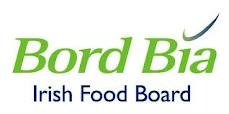

As millennials embrace products and brands which are made by smaller companies that use more natural ingredients and more transparent production processes, bigger companies and brands are having to pay heed.
According to an article in the Economist, from 2011 to 2015 large consumer packaged goods companies lost nearly 3 percentage points of market share. Nestle as an example, has missed its target sales growth of 5-6% 3 years running.
And beyond food, in an article in the Financial Times, “The bath time battle: Chemical versus Natural” , David Crow talks about Johnson & Johnson seeing sales of their baby care products slump to below $197 mn – the first time it has seen a fall to below $200 mn since 2007.
Interestingly, in the premium US baby care market more than 75% of the $300mn market is controlled by companies with a market share of less than 2.5% according to Euromonitor.
To quote one millennial consumer “ once my wife became pregnant we shifted all high volume corporate stuff out of home”.
Trust and the belief that smaller companies can deliver better quality are also reasons why people people are seeking out smaller brands. According to a survey conducted by Deloitte, one third of American consumers surveyed said they would pay at least 10% more for a craft version of a good. One category that has thrived in this zeitgeist is the craft beer industry. In the US, there are now more than 4,000 craft breweries – up by 200% in the past decade. Indeed in Ireland, there are now more than 62 craft breweries and according to Beoir an additional number in the region of 95 that are contract brewed. (There were only 15 microbreweries in 2012!)
Other factors enabling the rise of smaller companies include the rise of social media in allowing companies to access and reach consumers in ways they would not have been able to do in the past.
Barriers to entry are also evolving where businesses can outsource production and distribution has also become easier as companies can prove themselves with online sales before they move into big retailers.
So how are big companies responding?
We are seeing some interesting things happening . The big consumer goods companies are refocusing in a number of ways – including through acquisitions.
Nestle have recently appointed a new Chief Exective Ulf Schneider from a health company . This is the first appointment at that level, according to Campaign Live outside the company since 1922. It will be interesting to see how Nestle now positions itself into the future and how they might evolve their health agenda to match the consumer desire for better for you products.
Reinvention is also likely to be the name of the game as Jorge Mequita who was hired to lead Johnson & Johnson’s consumer business says of the overhaul of their babycare business “you should expect a complete reinvention of every product line and every element”.
Closer to home Guinness’ successful launch of their Hop House 13 is another example of responding to the new market dynamics.
Perhaps “the billion dollar brand” is challenged according to Kritsin Rogers from EY but what is clear is that the David and Goliath battle is in full swing.
For more information please contact Grace.Binchy@bordbia.ie








